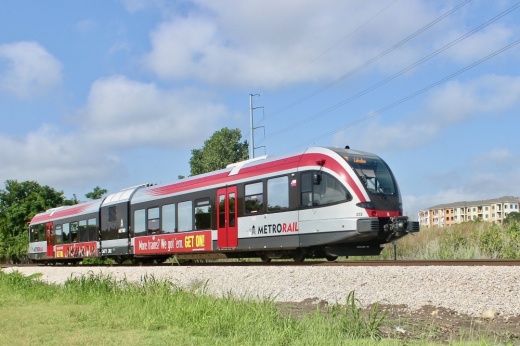Both Williamson County and Travis County are reporting all election day results as of 10:55 p.m., confirming a majority of Leander residents voted to remain a member of Capital Metro.
Proposition A, which asked residents to weigh in on the city continuing to be a part of Capital Metro, passed with 58.52% of votes—or 3,896 votes.
Proposition B, related to sales tax revenue, was contingent of a "no" vote on Proposition A.
Of the remaining 13 propositions on the ballot, three—G, H and K—failed. The majority of the residents voted in favor of the others.
Find a breakdown of each proposition below and complete election results from the community here.
UPDATED 10:27 p.m.
As of 9:47 p.m., Williamson County is reporting election day results from all 27 polling locations. Not all Travis County election day results are in as of 10:30 p.m.
So far, 59.35% or 2,919 Leander residents have voted in favor of Leander remaining a member of Capital Metro, which was Proposition A on the ballot.
Proposition B, related to sales tax revenue, was contingent of a "no" vote on Proposition A.
For the remaining propositions, Propositions C-F and I-O have majority support from residents. Propositions G and H have a majority of voters opposing them.
Read more about each proposition below and find updated election results here.
POSTED 8:10 p.m.
During the May 7 election, Leander residents had the opportunity to cast ballots for or against 15 propositions, including whether the city will continue to be a member of Capital Metro.
As of 7 p.m., early voting results have been reported from both Williamson and Travis counties. Early voting results include ballots cast via mail and in-person April 25-May 3.
Proposition A
So far, 58.79% of Leander voters have voted “yes” to Proposition A. If this vote holds, the city would remain a member of Capital Metro. A total of 3,941 votes have been cast in the Proposition A election.
Voters first elected to join Capital Metro in 1985 and confirmed that decision with another vote in 2020.
If Leander remains a member of Capital Metro, bus, pickup and rail services will continue as normal.
Additionally, in March, the two entities approved an agreement that would allow for the portion of sales tax revenue allocated to Capital Metro that surpasses the city’s cost of service to be reallocated back to the city to fund local transportation projects—$1.9 million in 2021, according to the city and previous Community Impact Newspaper reporting. Contingent on remaining in Capital Metro, Leander could also be eligible for $7.4 million to fund transit supportive infrastructure projects.
If a majority of voters vote “no” to staying in Capital Metro, all services would cease within 48 hours of canvassing votes, but the 1% sales tax revenue would continue to pay down an outstanding balance estimated at $42 million in December, according to previous reporting.
City Council approved a $520,520 contract with Star Shuttle April 21 to provide on-demand and computer bus service for six to eight months, if residents decide to leave Capital Metro. Discussions are ongoing about long-term transportation alternatives.
Proposition B
Proposition B is conditional on a “no” vote to proposition A.
A majority of early voters—57.59%—have cast ballots again of Proposition B.
Currently, 1% of Leander’s sales tax—like every participating city—goes to Capital Metro. This 1% amounted to $9.8 million in 2021, according to the state comptroller.
A “yes” vote to Proposition B would reallocate that 1% in sales tax revenue back to the city, effectively raising its local sales and use tax rate to 2%.
A “no” vote to both propositions would effectively lower the city’s sales tax rate by 1% once all debt is paid.
Propositions C-O
Early voting results show 11 of the remaining 13 propositions on the ballot have received a majority of support. Only Propositions G and H have received fewer than 50% of votes in favor.
Find out how many votes each proposition has received here.
Here is a breakdown of what each proposition would do if passed, according to a city of Leander FAQ.
Proposition C would limit council members to serving three three-year terms. After those nine years, they must be out of office for a full term, unless running for mayor. Under the proposition the mayor would be capped at serving three three-year terms and setting out a full term before being eligible to file for election again.
Proposition D would require council members to immediately resign upon filing for candidacy to public office not on City Council if their current term has more than 1 year and 30 days left.
Proposition E states that City Council members would take office on the first Tuesday after votes are canvassed. If a runoff is necessary, the winner would take office on the first Tuesday after results of the runoff are canvassed.
Proposition F would allow for the city manager to request a public hearing to discuss the reasons the council is calling for their suspension or removal.
Proposition G would let the city manager appoint department heads without Council approval.
Proposition H would eliminate the requirement that police department employee evaluations are submitted to council, and make it so they are only reviewed by the city manager.
Proposition I would remove language in the city charter stating fire department evaluations are subject to modification by the city manager, and make it so they are only subject to review by the city manager.
Proposition J states that the mayor pro tem will be appointed at the first regular meeting following the canvassing of election results.
Proposition K would make it so each council member appoints a member to the Planning and Zoning Commissioner without requiring a majority vote of Council. If a Council position is empty, the appointment will be made by a majority of Council.
Proposition L would extend the amount of time the city can contract with an independent auditor from 3 years to 5 years.
Proposition M would remove some duties from the purview of the mayor, better aligning the position with the duties of the office.
Proposition N would remove the requirement that applications for public record be stamped with the city seal and a copy of the application be provided to the applicant, allowing for public records to be requested and provided electronically.
Proposition O would remove the provision of the city charter that states the Charter Review Commission serves a six month term, allowing them to meet in the timeframe directed by Council.
All election results are unofficial until they are certified and canvassed.





